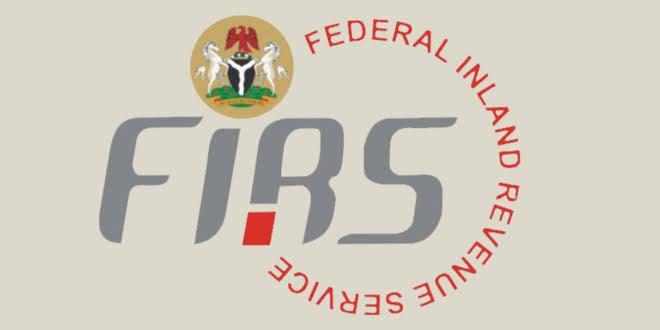The Nigeria Immigration Service (NIS) is one of the leading paramilitary agencies in Nigeria, operating under the Federal Ministry of Interior. Tasked with regulating migration, securing national borders, and enforcing immigration laws, the NIS plays a vital role in Nigeria’s national security and socio-economic development.
In this post, we explore the official duties, roles, and responsibilities of the NIS, especially as they relate to modern challenges like border control, human trafficking, and international migration.
What is the Nigeria Immigration Service (NIS)?
Established in 1963 after separating from the Nigeria Police Force, the NIS is empowered by the Immigration Act of 2015 and several allied laws. The agency is responsible for immigration control, passport issuance, residence permits, and maintaining a secure border environment.
Official Duties and Responsibilities of NIS
Below are the core roles and responsibilities of the Nigeria Immigration Service:
1. Passport Issuance and Management
NIS is the only authorized body to:
- Issue Nigerian international passports (Standard, Official, Diplomatic, etc.)
- Renew and reissue passports
- Detect and prevent passport fraud
2. Border Control and Security
One of the most critical functions of the NIS is:
- Monitoring all land, air, and sea borders
- Preventing illegal migration
- Using biometric e-border solutions and surveillance technologies
- Collaborating with Customs, Police, and NDLEA at checkpoints
3. Visa Issuance and Regulation
NIS handles:
- Visa issuance to foreign nationals
- Visa-on-arrival services
- Checking compliance with visa terms
- Denying entry to undesirables or prohibited immigrants
4. Residence and Work Permit Administration
NIS oversees:
- Issuance and renewal of Combined Expatriate Residence Permit and Aliens Card (CERPAC)
- Regulation of foreign nationals living and working in Nigeria
- Monitoring compliance with immigration laws
5. Enforcement of Immigration Laws
NIS officers are empowered to:
- Arrest and deport illegal immigrants
- Investigate immigration-related offenses
- Prosecute human smugglers, traffickers, and offenders of the Immigration Act
- Conduct periodic raids on companies, homes, and hideouts harboring illegal migrants
6. E-Immigration and Digital Services
With modernization efforts, NIS now offers:
- Online passport application portal
- E-visa platforms
- Biometric enrollment for foreign nationals
- Integration with National Identity Management systems (NIN)
7. Migration Management and Repatriation
NIS works with international bodies like:
- International Organization for Migration (IOM)
- ECOWAS To:
- Manage voluntary return of Nigerians abroad
- Regulate internal and external migration trends
- Implement regional migration protocols
8. Combating Human Trafficking and Smuggling
In collaboration with NAPTIP and INTERPOL, NIS:
- Intercepts victims of human trafficking at borders
- Arrests and prosecutes traffickers
- Engages in public awareness campaigns against illegal migration
9. Monitoring Entry and Exit of Persons
NIS officers are stationed at:
- International airports
- Seaports
- Border crossings
Their task is to:
- Verify traveler documentation
- Detect forgeries or impersonation
- Track travel data through the Migration Information and Data Analysis System (MIDAS)
10. International Relations and Agreements
NIS represents Nigeria in:
- Bilateral and multilateral discussions on migration
- Enforcement of international treaties like ECOWAS free movement protocols
- Cooperation with other immigration bodies globally
Additional Responsibilities
- Advising the Federal Government on immigration policy
- Maintaining the National Immigration Database
- Issuing refugee and stateless person documentation
- Licensing and regulating immigration consultants and agents
FAQs About the Nigeria Immigration Service
Q1: Is NIS a paramilitary agency?
Yes. The NIS is a uniformed, paramilitary organization under the Federal Ministry of Interior.
Q2: Who controls immigration in Nigeria?
The Nigeria Immigration Service (NIS) under the supervision of the Minister of Interior.
Q3: Can NIS arrest and deport people?
Yes. NIS has the legal authority to arrest, detain, and deport persons who violate Nigeria’s immigration laws.
Q4: What are the ranks in NIS?
Ranks range from Immigration Assistant (IA) to Comptroller General of Immigration (CGI).
Q5: How can one apply for NIS recruitment?
Through the official portal: www.immigrationrecruitment.org.ng (when active).
Conclusion
The Nigeria Immigration Service (NIS) plays a critical role in managing Nigeria’s entry and exit points, enforcing immigration laws, and safeguarding national security. Its responsibilities are expanding with technological advancement and the global migration crisis. Understanding these duties helps appreciate how the NIS contributes to both national development and international cooperation.

















